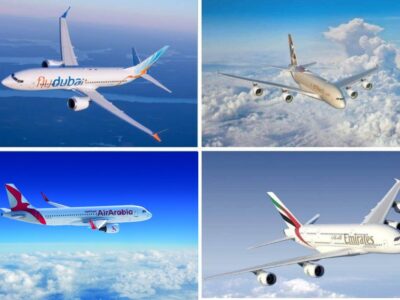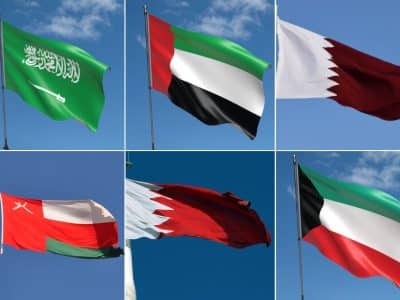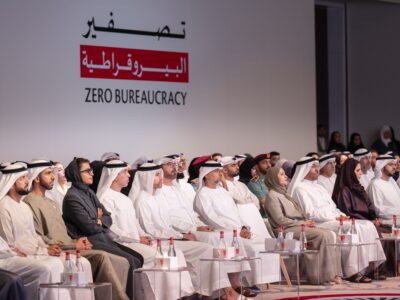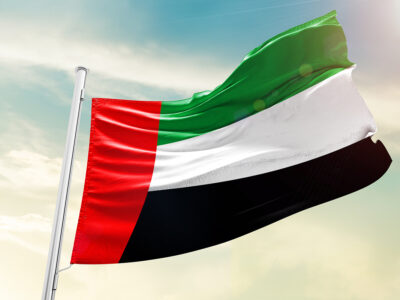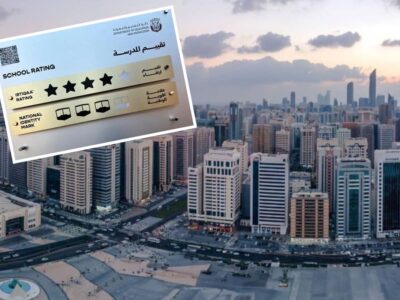Marriott International president and managing director Ed Fuller outlines the hotel behemoth’s plans in the region and its policy towards emerging superpowers such as China and India.
What is happening in the Middle East region for Marriott?
A lot of things are happening, and what is exciting about it right now is the growth. Over the last couple of years we have announced 31 [new] hotels – that’s a lot of growth considering there are 22 operating right now. Those 31 hotels should open between now and 2012.
We are not afraid to co-brand with organisations that have already established themselves.
What is exciting about that is that Bill [Marriott] signed another four last week, and we have a couple more that we are going to sign this week – I am just here [at the Arabian Hotel Investment Conference] to clean up the loose ends.
The focus of a large number of that development is the United Arab Emirates, and the second is Saudi Arabia. About seven of them are in Saudi Arabia, which is great because we have been in the Kingdom since 1975 and this is really the first time we have had a chance to expand.
For the most part they are in Riyadh and Jeddah, but we are waiting to see what will happen in the new cities being built along the sea. I am sure we will do some more things there down the line.
Then there is Qatar, and continued growth in Egypt, and Jordan, where we are already quite large, and also Algeria, which of course is a bit further out of the Middle East.
Part of the reason for that is that the Middle East is really starting to ripple into other areas, and we are working – even though we don’t have a pipeline to announce yet – in Northern Africa, and we will be announcing some things in the immediate future in Africa.
What Marriott brands are you looking to introduce to the region? Are we going to see new brands introduced?
The brands will continue to be Ritz-Carlton and JW Marriott in the luxury tier, and quite frankly what is exciting about that is that JD Powers this year named the top three luxury hotel brands, and they are now Ritz-Carlton, JW Marriott and Four Seasons. So it’s good to have two of our brands in the top three.
We will also have Renaissance-branded properties in Qatar and in Dubai in Motor City. There will also be seven Courtyard branded properties to add to the two we already have in Kuwait and Dubai.
And we think that [the Courtyard brand] will be very important because the moderate segment is one that hasn’t really been looked after in this region with a lot of development in the luxury tier.
Our Dubai Courtyard property is doing so unbelievably well that we are convinced this market needs more in that segment.
There will also be continued growth with the Marriott Executive Apartments. And we are continuing to look at other opportunities with things such as timeshare.
On that point, after recently announcing the first Marriott Vacation Club at Festival City, is it going to be rolled out anywhere else in the region?
That’s altogether possible, but it would be premature to say. If you look at this market, Oman is a wonderful place for destination resorts, and I think there are other opportunities that are continuing to evolve. Even Abu Dhabi is starting to emerge.
I think that the more general statement is that when you look at the UAE and what Saudi Arabia is talking about, they are changing the look of the destinations to make resorts more of an option, and in that respect many places have taken the playbook from Dubai.
You will see some of the other Emirates start to look like resorts, where perhaps previously they have not looked like resorts before.
And clearly, when you look at the number of European visitors coming into this market, these destinations will have great value in the long-term. This market has great potential.
Further afield, what are the plans for other emerging markets such as India?
India is going like hot-cakes! We have 24 properties under development right now, with 20 in construction already. There are also six operating.
We recently made an announcement with Emaar [to develop three JW Marriott-branded properties and one Courtyard-branded property in India] and there are more to come.
India is very much a market that is hot because it is under-supplied, and it will be for the immediate future. We feel very strongly about India and we are pleased to have gotten in on the ground floor, other than companies like Taj, Oberoi and Welcome, which have been in India for a long time.
We have opened an area office there, with a sales and marketing team, and we are very well positioned in that market to continue to grow. We see India as a real growth area for us with new destinations and new opportunities. We are looking to India for a decade of growth, or more.
We are at a point in India right now where we can use our full array of brands, and as we start to move through these brands we will do that in each major city. What is exciting about India is that it is not just one or two major cities, there are many, so the potential is great.
And the other growth market on everyone’s lips: China. What are your plans?
China continues to grow. We are operating 33 hotels there now, and we have 20 that have been announced, with more coming.
China is a large market with plenty of opportunities, and while we have been focused on some of the larger cities we are still largely focused on Shanghai with most of those 20 coming up.
This is not all about the Olympics, its about long-term growth in China as a whole, so we hope to have 50 hotels in place by late 2011.
Combining the Middle East, China and India, are these the three major growth markets for Marriott?
Between now and 2011, we have more than 800 hotels that are signed, announced, and in some cases under construction. Sixty percent of those are outside the United States, and clearly when you look at our opening track we believe we will have 200 hotels in Asia.
When you look at the Middle East we will have 50-60 hotels in the same time frame. So these are fast growing areas, but that is not to say that we don’t have some great announcements coming up in areas such as Latin America.
Internationally though, with the exception of the 40% of properties in the United States, these three markets [Middle East, China, and India] are the hottest individual markets in the world.
What new brands does Marriott plan to deliver?
There will be two new brands we have introduced, which aren’t yet out here. One is Edition, which is our boutique brand [in partnership with Ian Schrager] that we will be able to take global. It will take us two or three years to get there, but I see that application here also [in the Middle East].
The other one is Nickleodeon, which is brand new. The first one is in San Diego, and it is all about family. You can’t help but look at Dubailand and think that there will be a Nickleodeon property in there someday.
We are continuing to develop brands that have particular applications to segmented markets that we believe have tremendous opportunities.
We are not afraid, as is the case with Nickleodeon, to co-brand with organisations that have already established themselves. At the same time we are not afraid to pioneer and innovate in building the Edition.
With all the talk of credit-crunch and recession, have you seen any negative impact to your business?
Hotels are built over a long-term period, not over trends, so we have always continued to grow over the ups and downs that I have experienced.
But short-term, we have not seen any impact on our business. We are continuing with the 800 hotels we have planned. I would not suspect anything dramatic to impact that.
A lot of that is driven by the fact we are opening a lot of smaller properties in the US with our Courtyard and Fairfield properties, and we are continuing with our large projects as well.
What we are seeing internationally is a slowdown because of a shortage of resources such as cement and steel. But I think it is too soon for me to pontificate on the global economic situation.
What are you the most excited about coming up this year?
I have a lot to be excited about. I never envisioned the growth we are having right now, in my wildest dreams. I can tell you right now that we probably could see 500 international hotels by 2012, in 80 or 90 countries. The fact is that our growth in the Middle East and Asia is moving so quickly.
What has got me excited is the dynamics of the projects – because we are talking about some really exciting JW Marriott properties, and some really unique projects.
The property we have just opened in Beijing has some of our new F&B concepts built into it, and we are using [designers] Super Potato right now on some of our projects in India, and we are going to really create some exciting stuff there.
Courtyards are really well positioned right now. For me, that brand is in really great shape. We have removed some properties that didn’t meet the standard, and we have defined our Courtyard product regionally – the example for the Middle East is the Courtyard at the Green Community in Dubai.
The product is different in each region, and we have finally got that settled. That brand is about to roll.
And then there is the prospect of really getting Renaissance rolling out across the Middle East. It has been a slow step so far, but we have several that are now ready to go.
So I am excited about the brand portfolio, excited about the new products we have growing, and about the people we have as well. We have introduced some new education programmes, which are bringing people in at grassroots level.
This is good stuff. There are 72,000 team members outside the US, and around 6000 managers, and we are really seeing these people grow in their jobs. We celebrated the other day the fact we have our first GM from mainland China who has grown in her job – that’s in less than 10 years.
Part of our strategy now is to develop talent in the Middle East so that they are later able to go back to their country and fill in these roles for us there.
And then of course, we need to ship more people over here to learn. We have been using our Middle Eastern hotels, in effect, as a kind of university to give us an opportunity to grow people. This is really exciting.
